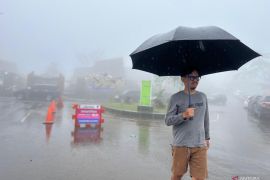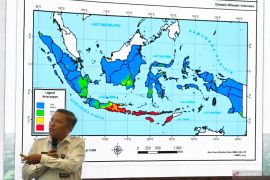"El Nino, in accordance with the prediction results, has started to occur in Indonesia since July (2023). But according to the prediction results, El Nino was still weak in early July," she said after opening the 2023 Cilacap District Fishers' Weather Field School (SLCN) here on Thursday.
Thus, the impact of El Nino in early July was less significant because it was still weak, she explained.
However, several days ago, in line with predictions, the El Nino index strengthened from what was initially weak to moderate.
"That is why we are continuing to intensively appeal, remind, that as El Nino becomes more moderate or becomes stronger, its impacts will become stronger as well," she informed.
Related news: Government discusses preparations for handling impact of El Nino
The BMKG head said that the El Nino phenomenon is projected to peak in August–September and result in a dry season that is drier than normal years when the phenomenon is not observed, as was seen in 2020, 2021, and 2022.
She further said that if the condition becomes drier, land and forest fires can occur.
"Now that is what must be anticipated, prevented; do not mindlessly throw cigarette butts or start a fire on the land or in the forest," she advised.
She noted that El Nino could also affect farmers because it could cause air supply to decline, so the agriculture sector will be disrupted.
To this end, since early 2023, the BMKG has been making preparations, which have included implementing the Climate Field School program for farmers to help them adapt to El Nino by adjusting planting patterns.
"Of course, we are cooperating with agriculture offices in various regions in Indonesia," she added.
Related news: Bapanas to develop food early warning system to counter El Nino
Related news: BULOG has 750 thousand tons of rice to handle El Niño's impacts
Translator: Sumarwoto, Raka Adji
Editor: Yuni Arisandy Sinaga
Copyright © ANTARA 2023












